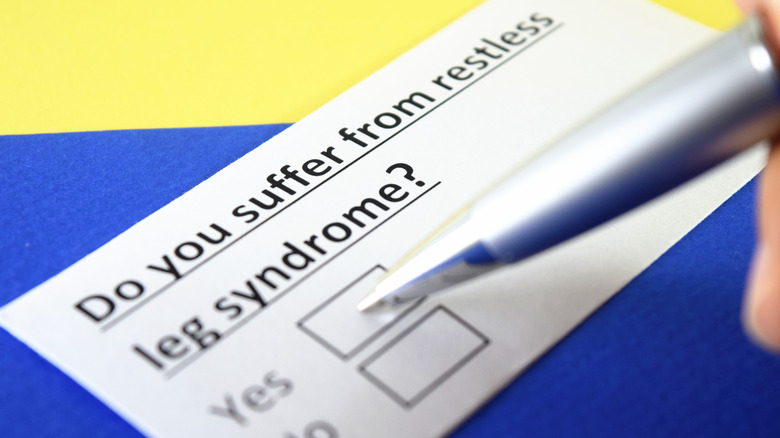Foods To Avoid If You Have Restless Legs Syndrome
If you have the intense urge to constantly move your legs, then you might have a condition known as restless legs syndrome. According to WebMD, RLS, also known as Willis-Ekbom disease, is defined as, "a nervous system disorder that brings about an overwhelming need to move your legs." There is no specific medical test to diagnose RLS, though your doctor may use a neurological exam and discuss your symptoms with you to make a correct diagnosis. To date, there is no cure, but there are treatments to help ease the discomfort of RLS and you can even do a few of them on your own. Here are a few tweaks you can make in your diet to help with any distress experienced from restless legs.
To begin with, Healthline notes that you should cut out, or at least cut down on, caffeine. Beverages like coffee, tea, and energy drinks may stimulate your body's nervous system and aggravate RLS.
Cutting back on sugary foods may help relieve RLS discomfort
Ditching your daily morning brew may be helpful, but neurologist Irving Asher, M.D., of the University of Missouri Health System, warns via WebMD that you won't be completely relieved of restless legs. "If somebody is having bad symptoms of RLS, getting rid of caffeine isn't going to solve their problem," he states. He goes on to say, "But if the case is mild, it may make a significant difference.”
In addition to cutting back on sugar and caffeine, it may also help to cut out alcohol consumption right before bed. Native Origins reports that a glass of wine right before bed will do more than simply make you drowsy, it can also disrupt your sleep cycle later on and trigger RLS symptoms.
Restless legs can be extremely uncomfortable and disturbing at times. While there is currently no cure, you can try adjusting your diet to help ease the intensity of the symptoms. For further diagnosis and treatment instruction, make an appointment with your doctor to discuss other tips and methods you can incorporate into your daily life as well.


